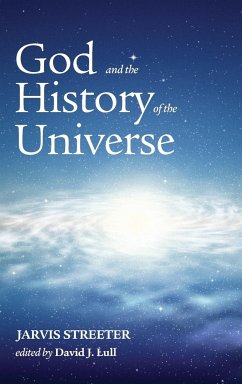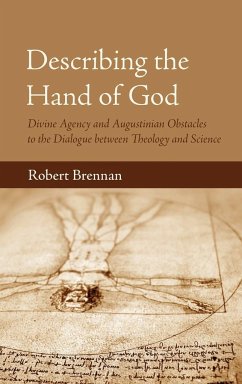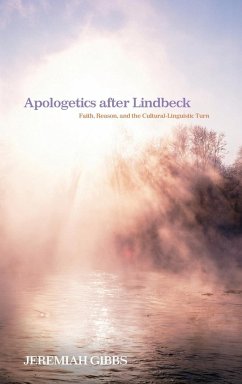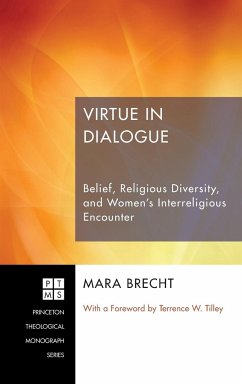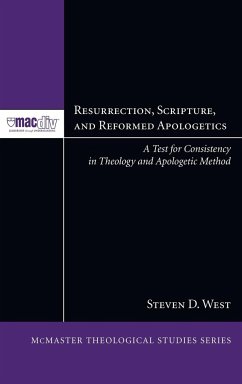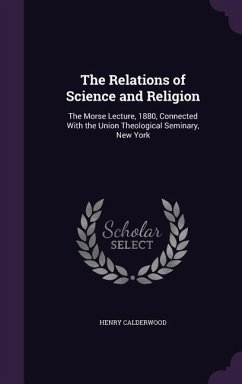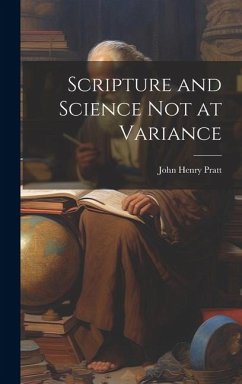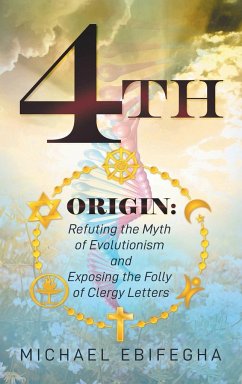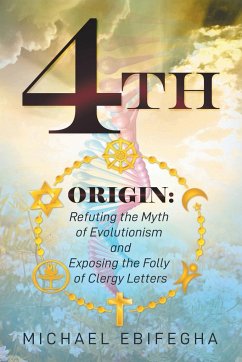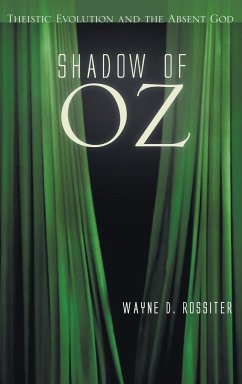
Shadow of Oz
Versandkostenfrei!
Versandfertig in 1-2 Wochen
33,99 €
inkl. MwSt.
Weitere Ausgaben:

PAYBACK Punkte
17 °P sammeln!
In the century and a half since Darwin's Origin of Species, there has been an ongoing--and often vociferously argued--conversation about our species' place in creation and its relationship to a Creator. A growing number of academic professionals see no conflict between Darwin's view of life and the Christian faith. Dubbed ""theistic evolution,"" this brand of Christianity holds that God has used processes like Darwinian evolution to achieve his creation. But is that true? Can Darwin's mechanism of natural selection acting on chance mutations be reconciled with God's intentionality in producing...
In the century and a half since Darwin's Origin of Species, there has been an ongoing--and often vociferously argued--conversation about our species' place in creation and its relationship to a Creator. A growing number of academic professionals see no conflict between Darwin's view of life and the Christian faith. Dubbed ""theistic evolution,"" this brand of Christianity holds that God has used processes like Darwinian evolution to achieve his creation. But is that true? Can Darwin's mechanism of natural selection acting on chance mutations be reconciled with God's intentionality in producing particular outcomes? Does humanity represent the apex of his creation, or just an erasable and ephemeral signpost along a path still being revealed? Does theistic evolution permit God to intervene supernaturally in the workings of his creation? Can we as humans be made in the image of God if we are just one of the millions of products of evolution? Can we salvage concepts like freewill, meaning, purpose, or an eternal soul within theistic evolution? In this book, Wayne Rossiter assess theistic evolution, and whether or not it is consistent with Christianity and secular science. His conclusion is that it bears little resemblance to classical Christianity, and promotes a century-old understanding of evolutionary theory. Theistic evolution renders God a passive player in creation, so far removed and undetectable that he resembles a mere shadow of the Creator described in Christianity. ""As if the thorny terrain separating Darwinism from Design were not intimidating enough, Wayne Rossiter has parachuted into the thickest patch, where people of faith are contending with one another for the future of their faith. Loppers in one hand and a machete in the other, he wastes no time. You may not agree with every cut, but you have to admire his courage and you can't ignore his arguments."" --Douglas Axe, Director, Biologic Institute ""Professors everywhere are pressuring students into accepting the false view that neo-Darwinian evolution is scientifically correct and friendly to Christianity. Shadow of Oz will give students--and any other reader--the intellectual arguments to stand up and explain why theistic evolution is poor philosophy, illogical theology, and outdated science."" --Casey Luskin, Research Coordinator, Discovery Institute ""I highly recommend this book for anyone who is seriously engaged in the question of how God interacts with our world, typically cast as the debate between theistic evolution and intelligent design. Just as C. G. Hunter's book Darwin's God examined at length the theology of nineteenth-century evolutionists, Rossiter's book takes a focused and iconoclastic look at the theology of current theistic evolutionists such as Kenneth Miller, Karl Giberson, Francis Collins, and John Polkinghorne. Rossiter approaches the subject as an expert in biology, well aware of the nuances of the arguments. While I may disagree with some of his points, this book deserves to take its place as one of the key review texts of the modern debate."" --David Snoke, Professor of Physics, University of Pittsburgh Wayne Rossiter is Assistant Professor of Biology at Waynesburg University.




